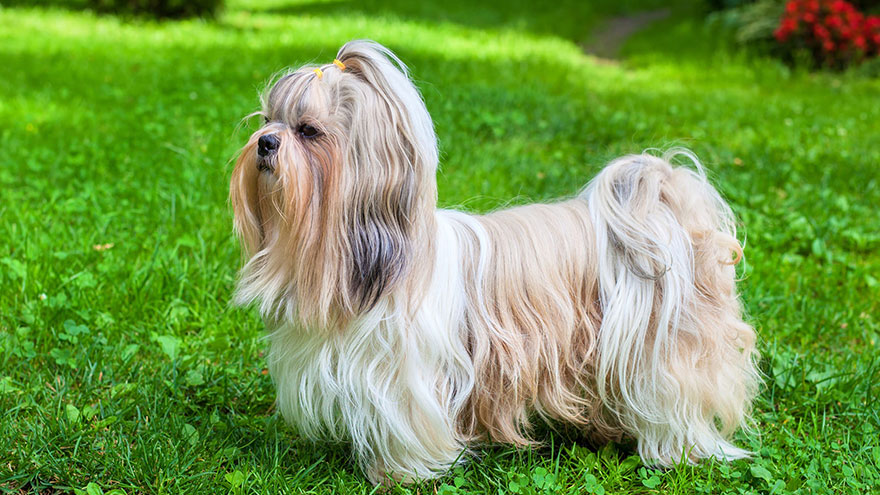Shih-Tzu Health Guide
The Shih-Tzu will live a fairly long and healthy life, up to 15 years with the proper diet and care. The long, beautiful hair of this breed misleads some into thinking they are a very delicate dog, but in truth this is a sturdy little animal.
If the new owner works closely with a top breeder and a veterinarian to make sure the puppy gets a good start, the Shih-Tzu should not present exceptional health problems.
Health Problems in the Shih-Tzu
Just remember that all purebred dogs have some inherent health troubles. The Shih-Tzu tends to have some issues with breathing because of the shape of its face and nose. Some in the Shih-Tzu breed develop eye and ear conditions as well. In addition, the Shih-Tzu should not be overfed because the dogs tend to gain weight easily.
Shih-Tzu organizations are distributing information about a condition called renal dysplasia that can affect this breed. This genetic defect of the kidneys can lead to symptoms such as excessive thirst, weight loss and even lack of appetite.
Ultrasound may help identify the condition because it may show the kidneys to be smaller than normal and may also indicate some scarring in the kidneys. Organizations, breeders and veterinarians are searching for the genetic marker to identify this condition. You may want to ask your breeder or veterinarian about renal dysplasia.
Another inherent problem for the Shih-Tzu is the genetic eye condition that arises because of the shortened nose and the prominent eye in relation to the skull. Some dogs have trouble closing the eyelid completely, which may lead to inflammation of the cornea.
Another problem with the Shih-Tzu’s prominent eye is the restriction of oxygen to the retina that may lead to vision problems. Dry eye is also of concern to Shih-Tzu owners. This is basically an abnormal amount of tear film on the eye, which can lead to visual impairment and scarring. These conditions should be among the items a prospective owner discusses with a breeder and with the veterinarian.

An eye condition that new owners should be aware of is distichiasis. This occurs when the eyelashes are abnormally located in the margin of the eyelid. Tearing, redness and inflammation are common symptoms of this condition. More serious damage to the cornea may develop over time. A veterinarian should be able to make the diagnosis and help the owner correct this problem.
Some Shih-Tzu may have a tendency toward liver problems, including chronic hepatitis. This potentially fatal disease sometimes occurs without the cause being known. Research continues to identify dogs with chronic hepatitis caused by an autoimmune disorder in which there are specific antibodies that work against the liver.
Many owners of Shih-Tzu and other purebred dogs have recently started to feed their dogs only fresh foods without preservatives. Often this food is fresh meats, vegetables and some fruits, similar to what the owner brings home from the store for the family.
A small amount of effort to learn about the natural requirements of the Shih-Tzu may save money and problems later in the dog’s life. Each breed may have certain protein, fat and mineral requirements that are not available in the commercial foods. Some experts suggest a diet of poultry, pork, rice and smaller amounts of soy and corn.
New owners of Shih-Tzu puppies should begin to develop a program of feeding that does not offer the pet too much food. This breed will overeat sometimes and can gain weight easily. Continuing the feeding program of a top breeder may be the best plan of all.
Read More About Shih-Tzu
- Shih-Tzu Breed Information
- Shih-Tzu : 10 Most Common Questions
- Shih-Tzu Training Guide
- Owning A Shih-Tzu : Breeder Recommendations

